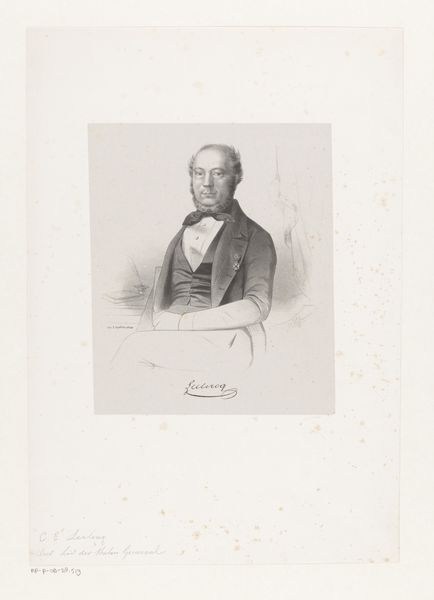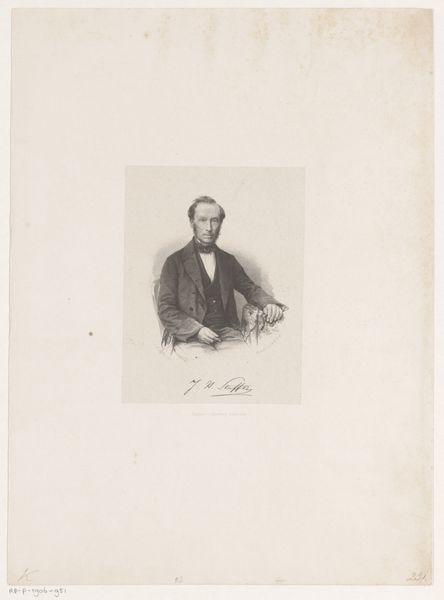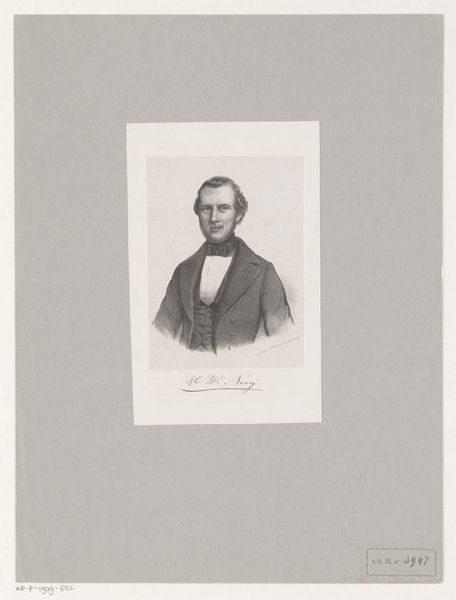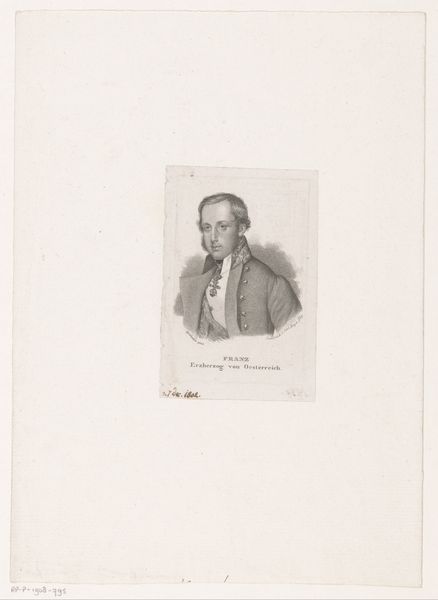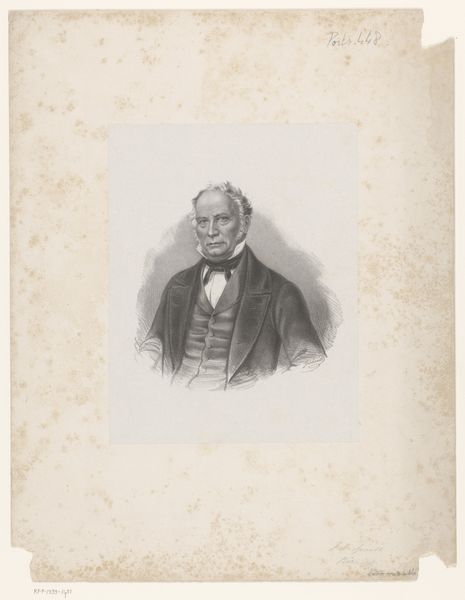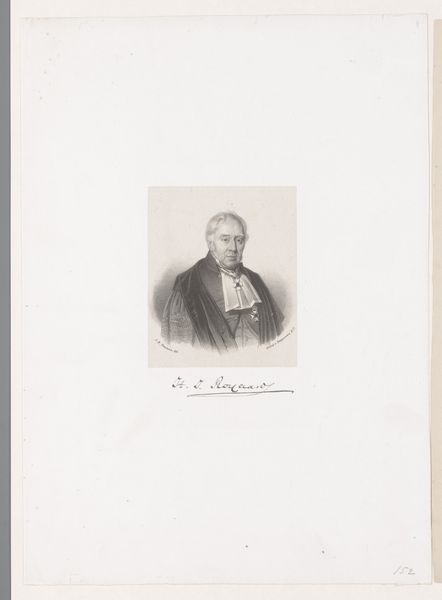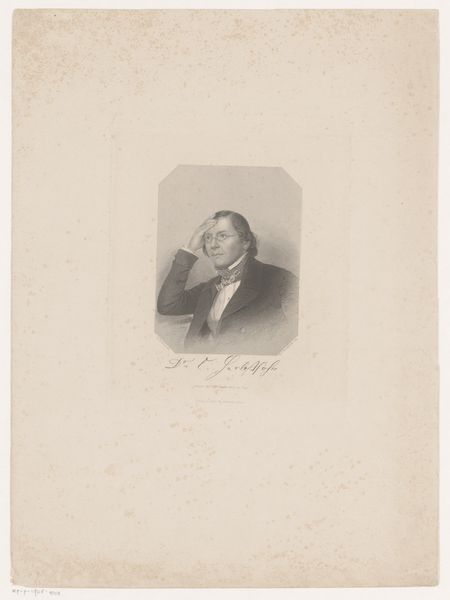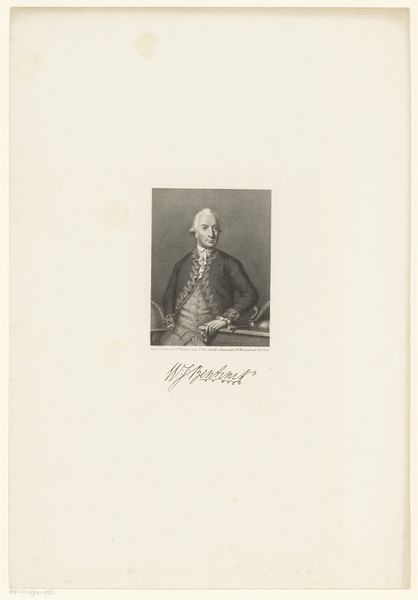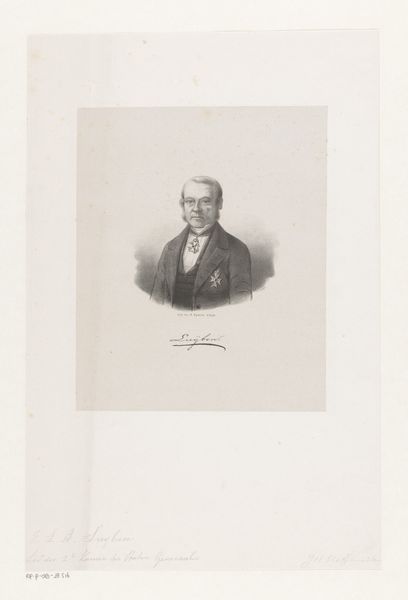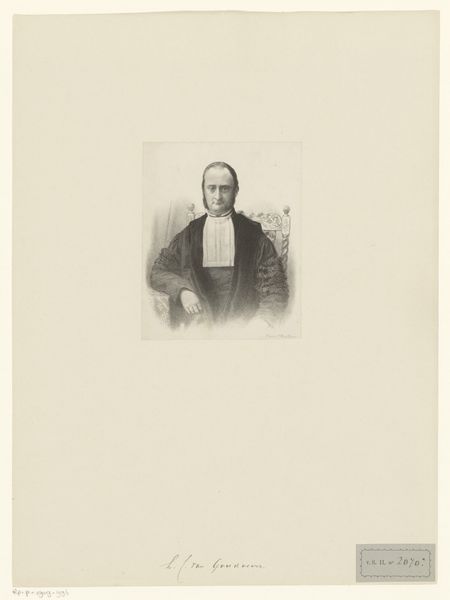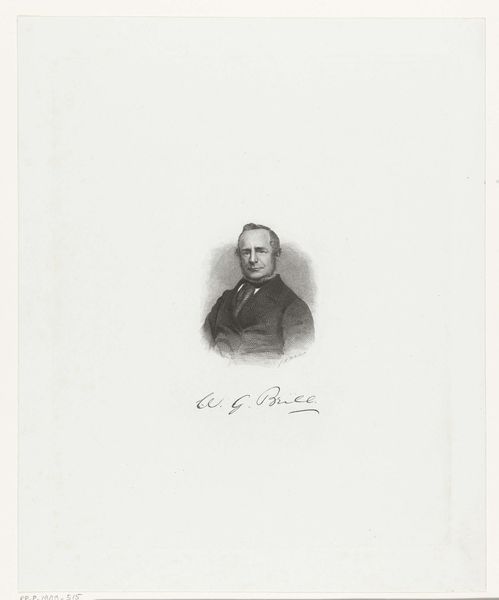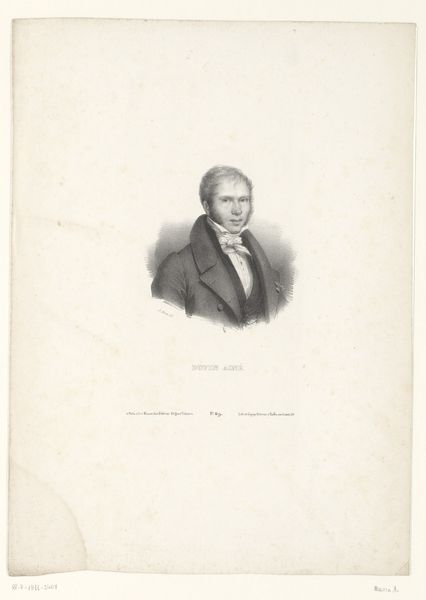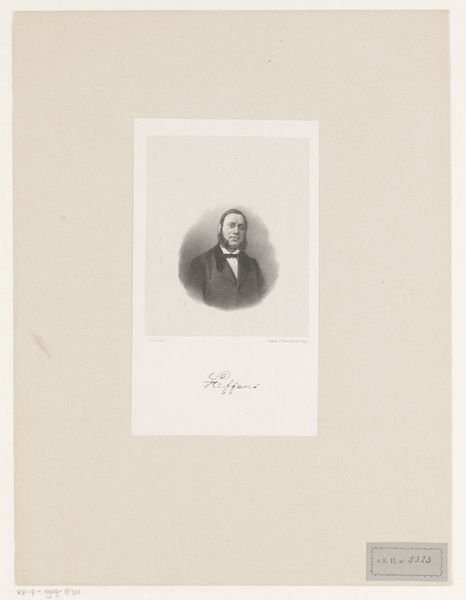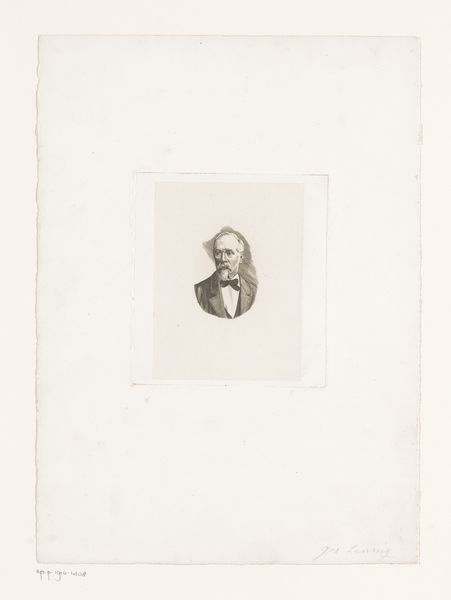
#
portrait
# print
#
academic-art
#
realism
Dimensions: height 195 mm, width 115 mm, height 340 mm, width 255 mm
Copyright: Rijks Museum: Open Domain
Carel Christiaan Antony Last made this portrait of J.W. Bungenberg with a technique called lithography. Lithography allowed for the relatively quick and inexpensive creation of images during the 19th century. Consider the era in which this portrait was created. The revolutions in Europe had a significant impact on the artistic and social landscape. The bourgeoisie were gaining prominence and sought representation. Portraits like this one served to immortalize individuals, reinforce social status, and project an image of respectability. Bungenberg's confident gaze, formal attire, and the subtle hint of a medal speak to his position and accomplishments within society. But let's also think about what isn't shown. Whose stories are absent from these formal depictions? As you stand before this portrait, think about the untold narratives, the complexities of identity, and the multifaceted lives that existed beyond the frame. How does this image contribute to our understanding of that time, and what does it leave unsaid?
Comments
No comments
Be the first to comment and join the conversation on the ultimate creative platform.
